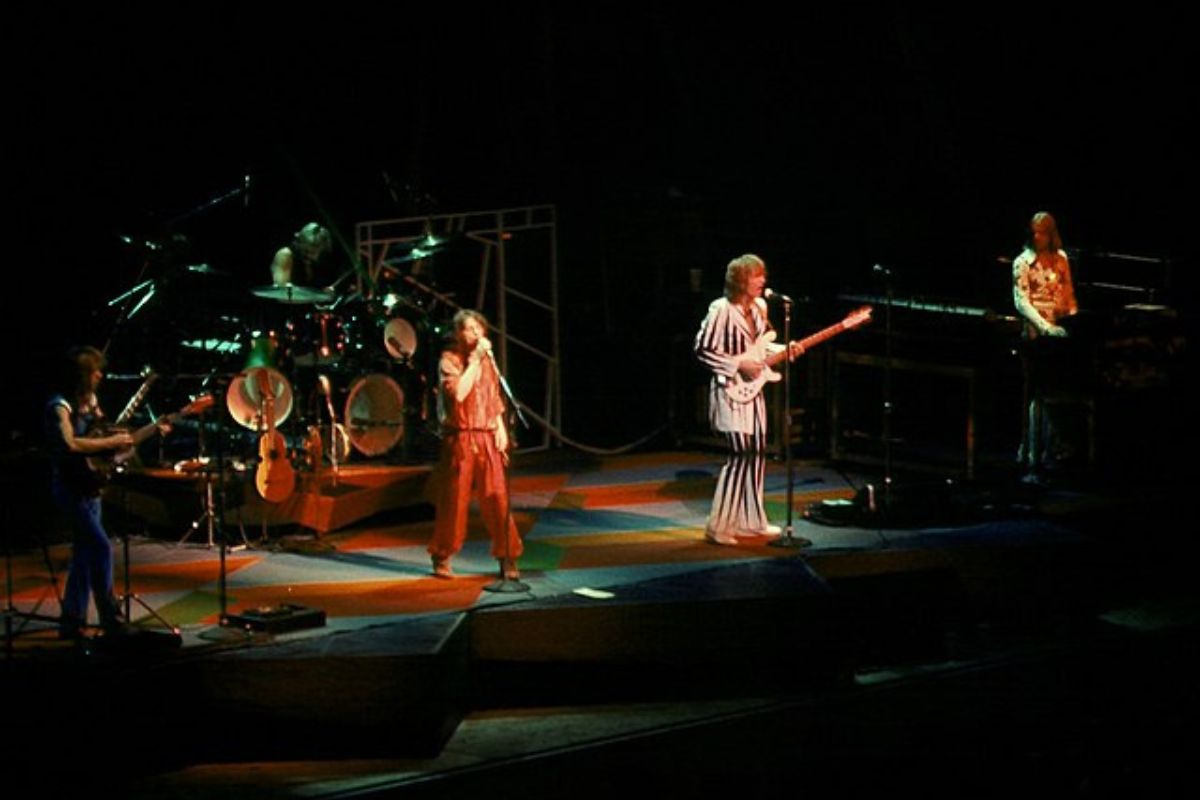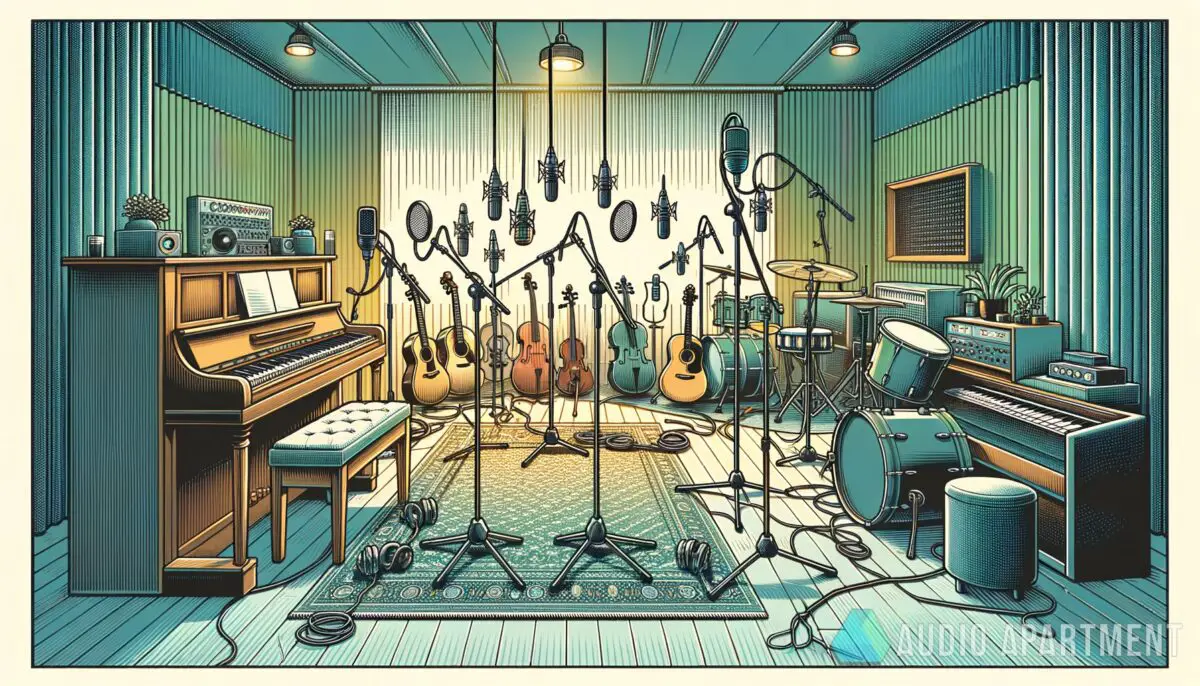Ever found yourself lost in the labyrinth of mesmeric guitar solos, intricate rhythms, and epic narratives only to realize you’ve been riding the waves of progressive rock all along? Prog Rock – that’s your jam, right? But what does it represent, and how far has its ripple effect reached in the music industry?
What is progressive rock? Progressive rock, affectionately known as ‘Prog Rock,’ is a subgenre of rock music renowned for its bold explorations in song composition, lyrical journeys, musical prowess, and penchant for experimentation. It’s like walking on a thrilling tightrope between the classic rock ‘n’ roll vibe and the adventurous allure of jazz and classical nuances.
Where did progressive rock originate?
Progressive rock, or “Prog,” emerged in Britain during the late 1960s from a specific set of musical, social, and technological trends. Early Prog Rock drew on many sources, combining elements of rock and roll, psychedelic rock, jazz, folk, and classical music.

AKAI Professional MPK Mini MK3

AKAI Professional MPK Mini MK3
Who were the leading figures in progressive rock?
Here’s a list of some of the leading figures in progressive rock.
- Ian Anderson: Lead vocalist and flutist for Jethro Tull.
- Robert Fripp: Guitarist and leader of King Crimson.
- Peter Gabriel: Original, the lead singer of Genesis, later pursued a successful solo career.
- Steve Hackett: A renowned guitarist who played with Genesis and later as a solo artist.
- Greg Lake: Bassist, guitarist, and vocalist for King Crimson and Emerson, Lake & Palmer (ELP).
- Rick Wakeman: Keyboardist for Yes and pursued a successful solo career.
- Jon Anderson: Lead vocalist for Yes.
What’s the lasting influence of progressive rock?
Fast forward to the 80s and 90s, and we see that the prog-rock spirit had heavily influenced the heavy metal scene. Bands like Metallica began to stretch their song structures and lyrical concepts, bringing forth albums like ‘…And Justice For All.’ Meanwhile, Dream Theater, formed by Berklee College of Music alumni, pushed the genre to new levels of ambition, thus initiating what we now know as progressive metal.
In the 21st century, we’ve seen the ghost of progressive rock lingering on with contemporary acts like Radiohead, Porcupine Tree, and The Mars Volta. They’ve built upon the tradition of progressive metal and found popularity in the new-age music scene.
What defines progressive rock music?
Below are a few characteristics that contribute to the soul of prog-rock:
- Musical ambition: Expect sophisticated harmonies, mixed-time signatures, and multi-part songwriting.
- Expanded instrumentation: They go beyond the traditional rock tools of guitar, bass, and drums introducing elements like mellotron and Moog.
- Embrace of technology: Prog rock bands have always quickly adapted and incorporated the latest tech in their music.
- Close ties to classical music: They draw inspiration from classical composition techniques and incorporate passages from classical composers.
- Concept albums: Bands used concept albums to match philosophical ambition to their musical prowess.
- Literary lyrics: Many lyrics are inspired by literature, poetry, and film.

What’s the relationship between progressive rock and classical music?
Most prog-rock bands didn’t just randomly pull elements from classical music; there’s a genuine appreciation for the genre’s compositional techniques. By incorporating passages from famous classical composers, they crafted a sound that felt familiar and fresh. Frank Zappa even took it to another level by writing chamber music that could be performed by classical ensembles.
By incorporating passages from famous classical composers, they crafted a sound that felt both familiar and fresh.
When we talk about the golden era of progressive rock, many might think it was just a “flash in the pan.” Well, that’d be a ‘hell no.’ Prog rock bands like Rush, Yes, and Genesis have left a footprint influencing many modern bands. Even the birth of the progressive metal subgenre was a direct result of prog rock’s influences.
How has progressive rock influenced music production techniques?
Below is a compact data table that outlines how progressive rock has influenced music production techniques, particularly in home studio recording and audio engineering fields.
| Progressive Rock Features | Music Production Techniques |
|---|---|
| Expanded Instrumentation | Pushed producers to implement various unconventional instruments and sounds, broadening the horizon of available tones and textures. |
| Embrace of Technology | Encouraged producers to readily adopt new technologies such as DAWs, VSTs, and electronic keyboards into music production. |
| Incorporation of Classical Music | Inspired the blending of music styles, encouraging producers to take compositional techniques from classical music. |
| Use of Concept Albums | Stimulated storytelling in music production, leading to concept-based songs and albums. |
If you want even more tips and great information about progressive rock, check out the video below.
Frequently asked questions (FAQ)
As we navigate the intricate world of progressive rock, here are some frequently asked questions to provide additional illumination.
Can I apply prog-rock principles in other music genres?
Absolutely! The principles of progressive rock, such as experimentation, complex melodies, and concept storytelling, can enhance and bring a unique flavor to any music genre. Incorporating these elements can make your music production more engaging and intriguing.
Are there modern bands still producing prog-rock music?
Yes, there are! Even in the 21st century, we still see bands like Muse, Coheed, Cambria, and The Mars Volta incorporating the principles of progressive rock in their music. They have successfully managed to take the essence of Prog Rock and adapt it to the modern music scene.
How has prog-rock influenced the world of music production?
Prog Rock’s impact on music production is paramount. It encouraged a broader range of instrumentation, pushed for technology embracement, and promoted the idea of concept-based songs and albums. All of these elements are core to modern music production techniques.
Conclusion
I hope it was as exhilarating for you as playing a 10-minute guitar solo at a packed concert in Wembley! So, have I managed to cover everything you wanted to know about progressive rock? If you still have questions, rest assured I read and reply to every comment. Please drop any queries or thoughts in the comment section below. If you found this post useful, go ahead and share it with your friends, and be sure to check out my full blog for more tips and music musings. Until next time, keep rocking, and remember: in music, as in life, dare to be different.
Key takeaways
After exploring the rich world of progressive rock, let’s recap some key points:
- Progressive rock originated in the 1960s, beating its heart strongly in England.
- Famous bands like Yes, King Crimson, and Genesis led the wave of Prog Rock.
- The influence of progressive rock extends into modern music, particularly in the heavy metal scene.
- The essence of Prog Rock lies in its musical ambition, expanded instrumentation, the embrace of technology, and concept albums.
- Music production in home studios can draw significant inspiration from progressive rock principles, boosting their creativity and innovation.















